News
-
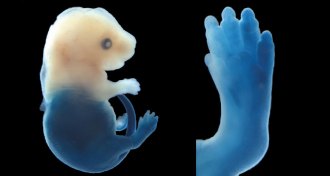
-
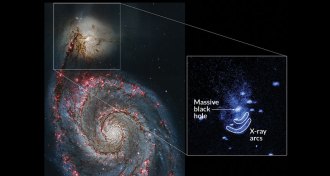 Astronomy
AstronomyBlack hole burps up gobbled gas and dust
Two belches from a supermassive black hole are drifting away from another galaxy.
-
 Psychology
PsychologyKids grasp words as symbols before learning to read
Preschoolers grasp that written words refer to specific things before they learn to read.
By Bruce Bower -
 Climate
ClimateArctic passageways let species mingle
People aren’t the only animals likely to use passages that open up as the Arctic melts.
By Susan Milius -
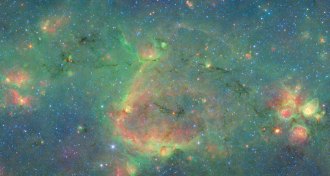 Astronomy
Astronomy‘Bones’ in Milky Way could help map galactic structure
Six newly discovered tendrils of interstellar gas might be “bones” of the Milky Way that could help researchers understand the scaffolding of our galaxy.
-
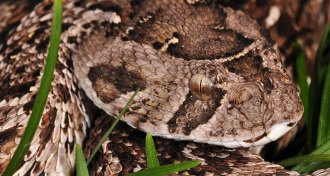 Animals
AnimalsPuff adders appear ‘invisible’ to noses
The snakey scent of puff adders proves difficult for even sensitive animal noses to detect.
By Susan Milius -
 Astronomy
AstronomyNew recipe found for making supermassive black hole
The universe’s first supermassive black holes may have formed directly from gas in colliding galaxies, new simulations suggest.
By Andrew Grant -
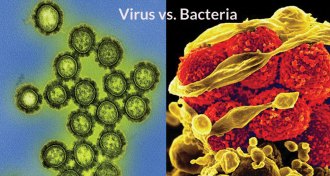 Health & Medicine
Health & MedicineGene behavior distinguishes viral from bacterial infections
Researchers have identified signatures of viral infection, a distinction that may help doctors tell whether bacteria or a virus is causing trouble.
-
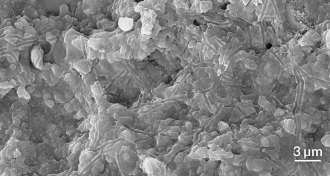 Paleontology
PaleontologyBubbles may have sheltered Earth’s early life
Bubbles formed on ancient shorelines offer scientists a new place to look for traces of early life.
By Meghan Rosen -
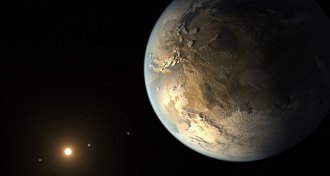 Astronomy
AstronomyExoplanets need right stuff to be habitable
The elemental makeup of a star can reveal whether planets in its solar system could support sustained plate tectonics, a requirement for Earth-like life, researchers propose.
-
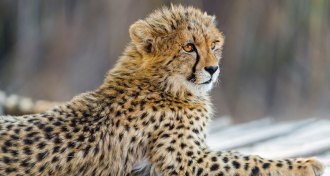 Life
LifeTweaking the pattern equations
A more than 60-year-old theory about how patterns in nature form gets an update.
-
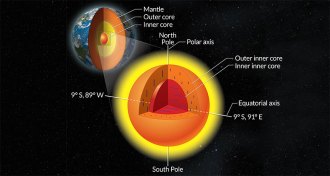 Earth
EarthSolid inner, inner core may be relic of Earth’s earliest days
Earth’s innermost inner core may have formed billions of years earlier than previously thought, shortly after the planet’s accretion.